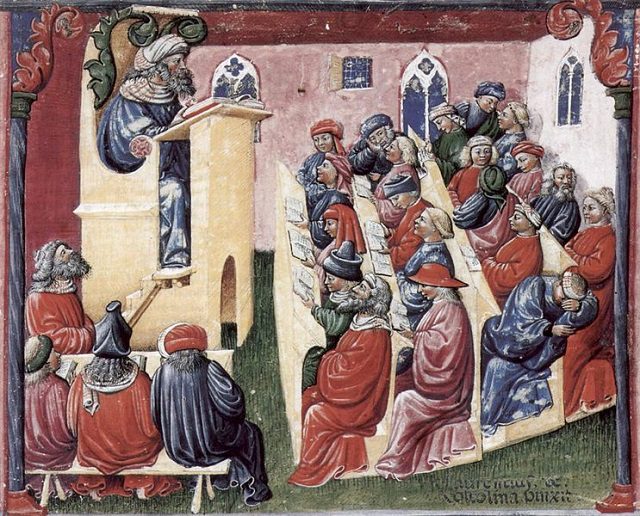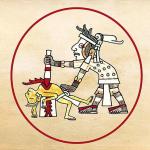
Conciliar infallibility is just as firmly entrenched in Christian and “Roman” (also Orthodox) Tradition as papal infallibility.
Thus, the Second Council of Constantinople (553) anathematized and condemned those who dissented from the definitions of the first four ecumenical councils, which “we follow and accept through all things and in all things” (Denzinger, 212).
The Lateran Council of 649, in its Canon 17, applies the same teaching to the first five councils (“all even to the last portion that has been handed down”). (Denzinger, 270).
St. Athanasius wrote of the Decree of faith of the Council of Nicaea: “The words of the Lord which were spoken by the General Council of Nicaea, remain in eternity” (Ep. ad Afros 2). Pope St. Gregory the Great honored the first five councils as much as the four Gospels (Ep. I 25).
Pope St. Leo the Great held to the unchangeable character of definitive conciliar teaching on the grounds that God had irrevocably confirmed these truths universae fraternitatis irretractabili firmavit assensu (Ep. 120,1). In his epistle 78: ad Leonem Augustem, St. Leo stated that those who resisted Nicaea and Chalcedon could not be numbered among Catholics, and that the latter’s decrees were framed instruente Spiritu Sancto (under the guidance of the Holy Spirit).
This is nothing more, of course, than was explicitly claimed by the Apostles for the Council of Jerusalem (Acts 15:28). Conciliar infallibility is a rather clear biblical teaching. Martin Luther, apparently caring little about all this precedent, simply denied this received truth, as these conciliarist precursors had done. That doesn’t mean that such teaching was ever officially adopted by either Rome or Orthodoxy, or that it was an “orthodox” option. Binding, infallible authority of the Church must be denied in order to adopt sola Scriptura. I’ll stand on Sts. Athanasius, Pope Gregory the Great, and Pope Leo the Great, and the Ecumenical Councils, as well as the Bible, myself.
I have not seen any conciliar decrees which declared that councils are entirely fallible. The historic Church speaks in councils. Protestants, too, waxed dogmatic in collective creeds and confessions (which at least applied to them, if not the universal Church). But they can’t show us any official document which took a position that councils were just as fallible as popes (in other words, Luther’s and Calvin’s sola Scriptura position).
Sola Scriptura, by definition, reduces to a scenario where the individual can pick and choose what he likes from the councils, based on which are “biblical” and which are supposedly not (i.e., according to the very subjective point of view of the person making the judgment).
1) Some Christians preferred councils over the papacy. They are Anglicans and Orthodox (and liberal Catholics, who are legion).
*
2) The classic Protestant position is that neither councils nor popes are infallible (Luther’s newly-minted position at the Diet of Worms). Calvin’s outlook is just a variant of Luthers, with regard to historical precedent. He draws the line in different places, but the underlying epistemological premises with regard to authority are the same.
3) Only one school of Christian thought has concluded that both councils and popes are infallible, and that they need not be pitted against each another at all (Catholicism).
Choice #2 is makes the study of Church history almost like secular anthropology: as a hobby or a pleasant pastime, just to “learn stuff about what happened” (not as any sort of guidebook for ecclesiology), since it entails adopting Luther’s “selectively historical agnostic” view. What he likes, he retains; what he dislikes, he jettisons. He decides. The individual Protestant decides. Quintessential private judgment . . .
EL Hamilton, an evangelical friend, asked:
Dave, point of clarification here. You say that we should not be concerned what a few “bigshots” say “here and there”, since Tradition is only authoritative when it “speaks in Councils”. But it seems to me that the Church functioned for several centuries before Nicea without having any developed sense of a “conciliar” role for confirming tradition, since the only Council that existed during that time was an exceptional one at which the apostles themselves presided, with the ruling confirmed by a supernatural vision– during a period when everyone, Protestant and Catholic, needs to admit that the teaching (Tradition) of the apostles was definitely authoritative. (Well, some Protestants might try to argue that it the ruling of the Jerusalem Council was only authoritative because it was eventually written in Scripture, but that seems dubious to me in light of the long delay between when the ruling was made, and when it was finally recorded by Luke.) But at any rate, it seems to me that you are saying that Tradition just means “conciliar authority”, which raises the question of what early Christian writers (like Irenaeus) were doing when they appealed to Tradition in a pre-conciliar environment.
*
I would think that one would have to admit that even though Councils would take precedence over individual opinions in cases of where those Councils were intended to address some particular controversy, that in the absence of a relevant Council on some particular issue, one could still appeal to a more piecemeal concept of tradition. And of course, I see nothing inconsistent with the idea of accepting the authority of the first seven (truly ecumenical) Councils, while being more suspicious of the later Western ones. To the best of my (sadly limited) knowledge, it was precisely the fact that the earlier Councils were ambiguous on the role of the Papacy– Nicea was relatively vague on what the primacy of Rome entailed, and certainly no one believed that the secondary ranking of Alexandria was intended to grant some kind of jurisdiction to Alexandria over Antioch/Jerusalem– that lead to the subsequent Schism, and required further “clarification” in later Councils (finally culminating in Vatican I) . . .
[T]hat doesn’t mean, as I think you might want to go on to say, that absolutely everything in Christian history would have to be viewed as unresolvably and infinitely “pluriform”, just because opinions on the role of the Papacy might happen to have been. The Arian controversy, for example, appears to have resolved itself within history in a decisive way, with (in my opinion) much more powerful appeals to Scripture, whereas the role of the Papacy has spawned several vibrant countermovements that have continuously preserved a parallel tradition, reflecting a diversity of speculative theological opinion that has been present in the Church from the very beginning.
I would say that authority in the early Church was developing just as the biblical canon and Christology and Mariology and purgatory and prayers for the dead and original sin and everything else was developing. But we see much indication of both papal and Roman primacy. Nothing is inconsistent with the later Catholic view; it is simply in a primitive state, and we should fully expect this.
The Orthodox can make a plausible argument also that the state of things in the early Church is also consistent with their later view (choosing between the two involves a very elaborate historical / ecclesiological argument which I do try to make, for better or worse).
Episcopacy starts in very quickly, with the norm being one bishop in each city or area. There was clearly a primacy in some sense of Rome. Catholics interpret that in a “papal” jurisdictional or “supremacy” way; Orthodox think it is merely a primacy of honor. But it is there, and that is a fundamental aspect of Catholic ecclesiology. If it wasn’t there, I agree that our case would be a very difficult one to make.
1st Clement shows that Rome had a very special place. Even a liberal historian like Harnack believed that this demonstrated that Rome “watched with motherly care over outlying communities.” Rome was the final court of appeal. Thus we find that around 190 Pope Victor sets the date of Easter even for the East and his instructions are followed.
St. Irenaeus, writing around the same time, states that all churches must agree with the Church of Rome, “in which sacerdotal unity has its source.” (Against Heresies, 3, 1, 1; 3, 3,2-3). St. Athanasius appealed to Pope Julius I with regard to an unjust decision of an Eastern Council, and the pope reversed the sentence. St. John Chrysostom acts in the same fashion, appealing to Pope Innocent I over against several Eastern prelates and the Empress Eudoxia. Both St. Cyril and Nestorius appeal to Pope Celestine in that Christological controversy.
Pope St. Leo the Great (r. 440-461), whom the Orthodox greatly revere, is in no doubt as to the supremacy of the pope and Rome:
The Lord . . . wanted his gifts to flow into the entire body from Peter himself, as if from the head, in such a way that anyone who had dared to separate himself from the solidarity of Peter would realize that he was himself no longer a sharer in the divine mystery . . . (Letter to the Bishops of Vienne, 10,1-2)
*
The care of the universal Church would converge one See of Peter, and nothing should ever be at odds with this head. (Letter to Bishop Anastasius of Thessalonica, 14, 11)
. . . only one, Peter, is chosen to preside over the calling of all nations, and over all the other Apostles, and over the Fathers of the Church . . . Peter . . . rules them all. (Sermons, 4, 2)
So, in short, my answer would be that the norm for orthodoxy in the early pre-Nicene (i.e., pre-Ecumenical Council) Church was Rome and papal decrees and judgments. There are widespread indications of this in the Fathers and (for Petrine primacy) in the Bible itself.
For many folks (but not you at all, I am happy to acknowledge), to possess a robust Catholic faith (and above all, to be an apologist for such a faith) is to be either a gullible idiot with his eyes closed to history and reason or an insufferably triumphalistic and arrogant jerk. I wonder why that is?
Why does this view bring forth such venom and threatened reactions in its detractors and critics? Seems to me that if the Catholic view were so unbiblical and anti-historical, that critics would easily be able to overthrow and explain away the tons of evidences that we can bring to bear. But they don’t. I remain thoroughly convinced of the Catholic position. If that makes me an insufferably arrogant and dishonest rascal, then I will wear the badge proudly.
I learned long ago that, regardless of what position one is arguing, if the only response is mockery and insult, one must be hitting a nerve or getting under someone’s skin. Once in a while a person like you comes along, with whom one can have a simple, immensely-enjoyable dialogue without all the insults and ad hominem evasions and obscurantism. I thank you for that once again.
There are indeed such things as “orthodoxy” and the “mainstream” of a given Christian Tradition. Protestants can appeal to any number of heretical views for any number of their positions. If you want sola Scriptura, you can go to the Arians as precursors or as a precedent. If you want Puritanistic, exclusivistic thinking, you have the Donatists.
If you want the anti-incarnational, anti-matter, anti-sacramental mentality, you can go to Docetism, etc. If you want to play around with orthodox Christology, you can cite the Nestorians and Monophysites. Some Protestants even think they locate “proto-Protestantism” in groups such as the Cathari and Albigensians.
But in the final analysis, Protestants cannot produce (or at least have not produced thus far) anything from a council to support a “fallibilist conciliarism” (i.e., a view identical to Luther and sola Scriptura).
***
(originally 1-10-04)
Photo credit: 14th century painting of a university lecture (Laurentius de Voltolina: school of Bologna) [public domain / Wikimedia Commons]
***













